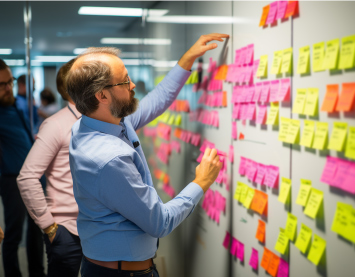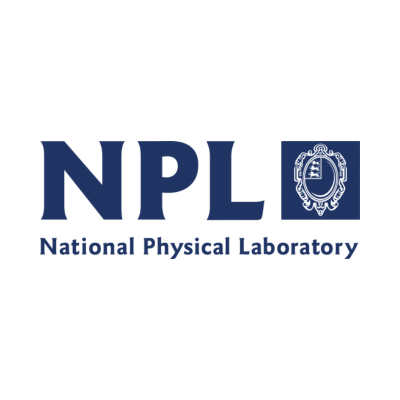Developing a business case for a national capability in timing
NATIONAL TIMING CENTRE (NTC)
Impact
Direct contribution to the plans for a Position, Navigation, and Timing office within the government.
Facilitated collaborative workshops with diverse industry and government participants fostering an environment of open dialogue and idea exchange.
Identification of critical knowledge and capability gaps across sectors highlighting areas requiring development, such as skills enhancement and innovation in time synchronisation technologies.
Impact
Direct contribution to the plans for a Position, Navigation, and Timing office within the government.
Facilitated collaborative workshops with diverse industry and government participants fostering an environment of open dialogue and idea exchange.
Identification of critical knowledge and capability gaps across sectors highlighting areas requiring development, such as skills enhancement and innovation in time synchronisation technologies.
A national capability in timekeeping is important because many aspects of UK industry and society require increasingly precise time. Whether it’s at home on our devices, the telecoms networks, energy, broadcast or in the finance industry, for example, where the time margins used are unfeasibly fine: one second for voice trading, one millisecond for electronic trading, and just 100 microseconds for high-frequency trading.
The National Timing Centre (NTC) programme, led by the National Physical Laboratory (NPL), provides the basis for resilient time distribution across the UK. NPL provides an independent advisory base and manages the standards of the nation around all International System of Units measurements, for example, the second, the kilogramme and the metre. They approached IfM Engage to help them develop industry use cases for creating the UK’s first national timekeeping capability.
A national capability supporting time, frequency and synchronisation objectives would play a vital role in UK prosperity, resilience and risk mitigation helping future-proof society as we develop smart cities, autonomous vehicles and communications. It would also prevent any serious impact on society if something were to occur to the signals received via the Global Navigation Satellite System (GNSS).

The process
The project was a collaborative process between NPL and selected stakeholders, facilitated by IfM Engage. An ecosystem mapping and strategic roadmapping-based process was run to produce a high-potential set of strategic initiatives for products, services and other solutions.
The roadmap was developed with the support of participants from industry and government for a two-day workshop. During the workshop, after examining trends and drivers the group identified a long list of potential products, services and other solutions and reviewed technologies, capabilities, and enablers to support these.
NPL found that combining ecosystem mapping and roadmapping was useful in understanding the external environment, challenges and drivers as well as where the trends for emerging applications were coming from.
Although NPL had been engaging with several organisations prior to the project, they found the ecosystem mapping exercise particularly useful as it allowed them to get an independent industry view of what the ecosystem looks like. “That’s quite powerful because there’s no bias involved in shaping that in any way,” says Dr Leon Lobo, Head of the National Timing Centre (NTC), who led the project for NPL, but deliberately stepped out of the workshops in order not to influence the outcomes.
NPL’s Chris Cobb, Strategic Business Development Manager, who was in the room for the workshops emphasises how important the diversity of the stakeholders was.
“You have people that have been looking at this for years and years and you have people that have never looked at this, or are novices, and the cross-pollination of ideas and bringing together different ways of thinking around the business, the risks, the business cases is really important,” says Chris.
Understanding future opportunities and limitations
The workshops allowed NPL to see potential partnerships and potential value creation clusters. “Pretty much every organisation across critical infrastructure develops capability in isolation and that is exactly the sort of outcome we are starting to address which is to bring together what is going to be a common benefit for all these organisations, to minimise the cost to industry, but also maximise the resilience in the long-term for the nation and our infrastructure. That aspect was very useful as it allowed us to cement that and to start to bring together the views from across industry in an entirely independent process,” says Leon.
A particularly important element was understanding limitations in capability so that could be addressed to achieve future missions for the industry. He points to the next generation of communications, those that will be needed in the next six years and beyond as an example.
“Potentially we’ll be hitting limits in terms of the level of time synchronisation that could be achieved from current methods. Understanding when that’s going to start to emerge has been very useful,” says Leon.

Building consensus and seeing action
Leon also found the structured, objective approach of the workshops very useful. “The approach to both the ecosystem mapping and roadmapping brought out not just the independent views across the industry groups that we pulled together, but essentially coalesced those into key clusters and key needs for the future for the UK. So, I think that was particularly useful in running that process by the IfM independently,” he says.
Another key outcome was clarifying who was going to be doing exactly what when it came to developing the business plan. The work was initially planned to bolster our business case which was going to go into government, but it actually transitioned into Government putting into place some of the thinking that industry brought to the table around a common leadership within government,” says Leon.
The clarification of roles that came out of the workshops has already led to some concrete results.
“We now have a Position, Navigation and Timing (PNT) office in place in government who took on the role of developing the business case. So now essentially we are supporting that business case. But a lot of the thinking that came out from the workshop we have essentially started to embed in that as well,” says Leon.
The workshops also played a valuable role in identifying gaps across the sector in knowledge and capability that need to be addressed in order for the NTC programme to fulfil its vision.
A key challenge that was identified in the workshops was a lack of skills base across the board, irrespective of sector. “There’s infrastructure, there’s the innovation space which covers the supply chain, and the research element towards it, so the whole TRL (Technology Readiness Level) spectrum. But the skill basis is absolutely crucial for any of this to work. That was highlighted, time and time again, and is now being addressed,” says Leon.
Outcomes so far
Leon says that a lot of the outcomes and outputs from the process and the project have definitely shaped their thinking in terms of how the business case has developed particularly around the areas of innovation and the element of trust that is going to be needed. The next steps for the business case will revolve around national resilience and value creation. “But that will come further down the line,” he says.
He notes that the workshops could not have come at a more significant moment in terms of the external environment that’s devolving, very rapidly, particularly in the conflict zones across the world. “It emphasises why this is needed in the first place. Prosperity is one thing, resilience is another, but there’s the whole element around security as well.”
In conclusion
When asked what the standout points of the process were, Leon points to the IfM’s professionalism. “I’d say the knowledge base of the team, as well as managing the diversity of the thinking into that structured approach and bringing it together was massively useful,” he says.
“The workshops definitely identified some gaps, and also started to coalesce key areas of value creation. But, also validated that we weren’t doing anything drastically wrong to date which was very comforting as well. It’s sort of full steam ahead,” he says.
Leon now considers the NTC to be “an enduring asset to be developed for the UK as the source of resilient time for the future.”
*this work was conducted between July 2023 – March 2024. All actions, where they are linked to government or government priorities, took place under the previous government.

“The knowledge base of the team, as well as managing the diversity of the thinking into that structured approach and bringing it together was massively useful. The workshops definitely identified some gaps, and also started to coalesce key areas of value creation. But, also validated that we weren’t doing anything drastically wrong to date which was very comforting as well. It’s sort of full steam ahead”
Dr Leon Lobo, Head of the National Timing Centre (NTC)

“The knowledge base of the team, as well as managing the diversity of the thinking into that structured approach and bringing it together was massively useful. The workshops definitely identified some gaps, and also started to coalesce key areas of value creation. But, also validated that we weren’t doing anything drastically wrong to date which was very comforting as well. It’s sort of full steam ahead”
Dr Leon Lobo, Head of the National Timing Centre (NTC)
About NTC
The National Timing Centre (NTC) programme, led by the National Physical Laboratory (NPL), has started to develop the UK’s first nationally distributed time infrastructure. It enables the UK to move away from reliance on GNSS and deliver resilient UK time and frequency that provides confidence to our Critical National Infrastructure.
RELATED RESOURCES
Roadmapping courses
We run a series of training courses in Cambridge and remotely, throughout the year, to support the transfer of roadmapping and related methods to individuals.
Strategic Technology and Innovation Management Consortium
A membership programme that enables collaboration between industrial member companies, researchers from IfM and other universities and participants globally.
Roadmapping templates
Download and use IfM roadmapping templates.
